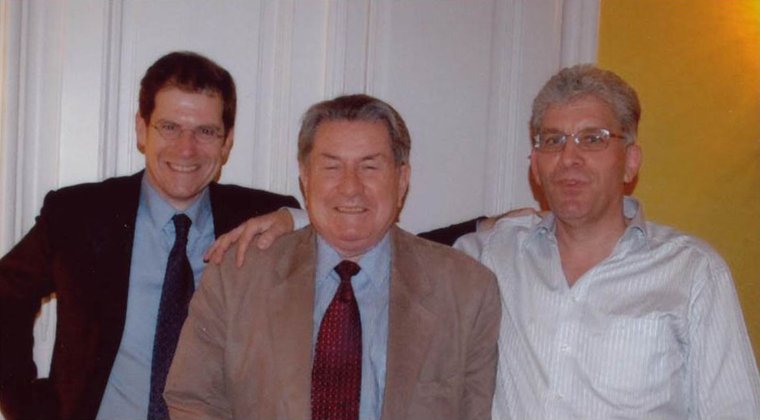Obituary Max L. Birnstiel
Share
It is with great sadness that we learn of the decease of Prof. Dr. h.c. mult. Max L. Birnstiel, of Wollerau, Switzerland. Max Birnstiel was the founding director of the Institute of Molecular Pathology (IMP) in Vienna and can be held responsible for kicking off the renaissance of the life sciences in Austria in the last 25 years. As a mentor of the CeMM director Giulio Superti-Furga, who in the late eighties had followed him as a PhD student together with his PhD supervisor Meinrad Busslinger, from Zurich to Vienna, Max Birnstiel provided important advice for the making and leadership of CeMM. Max Birnstiel will long remain a towering figure in molecular biology. Trained at the ETH in Switzerland with Frey-Wissling, he moved to Caltech to work with James Bonner. In 1966, together with his wife Margaret Chipchase, he first purified ribosomal RNA genes from vertebrates. He moved to Edinburgh where he physically isolated the histone genes of the sea urchin, before the invention of molecular cloning. Ernst Hadorn called him to the University of Zurich where for 15 years he led a world-renowned research program that determined gene-regulatory processes of eukaryotes. He was recruited by Boehringer Ingelheim and Genentech to conceive and lead the new IMP in Vienna, as a rather risky and innovative experiment, recruiting internationally and fostering world-class basic research in molecular biology in an environment that initially was a waste-land. He insisted on having the biochemical institutes of Vienna University to settle next to the IMP, to create the nucleus of the Vienna Biocenter. During his period as head of the IMP, he founded Intercell, a successful pioneering biotechnology company that helped put Vienna on the world map of research and business excellence in the life sciences. In his life, Max Birnstiel has earned numerous awards, prizes and honorary doctorates. He was a member of numerous academies, including the Austrian Academy of Sciences and the United States Academy of Sciences, as a foreign associate. In recognition of his pioneering work and immense contributions, the Austrian community of life scientists gave him the Achievement Award Medal during the EMBanniversary meeting in July 2014. In no possible way can the importance of Max L. Birnstiel for the life sciences in general, and for the Austrian molecular biology, be overstated. He will be dearly missed.

